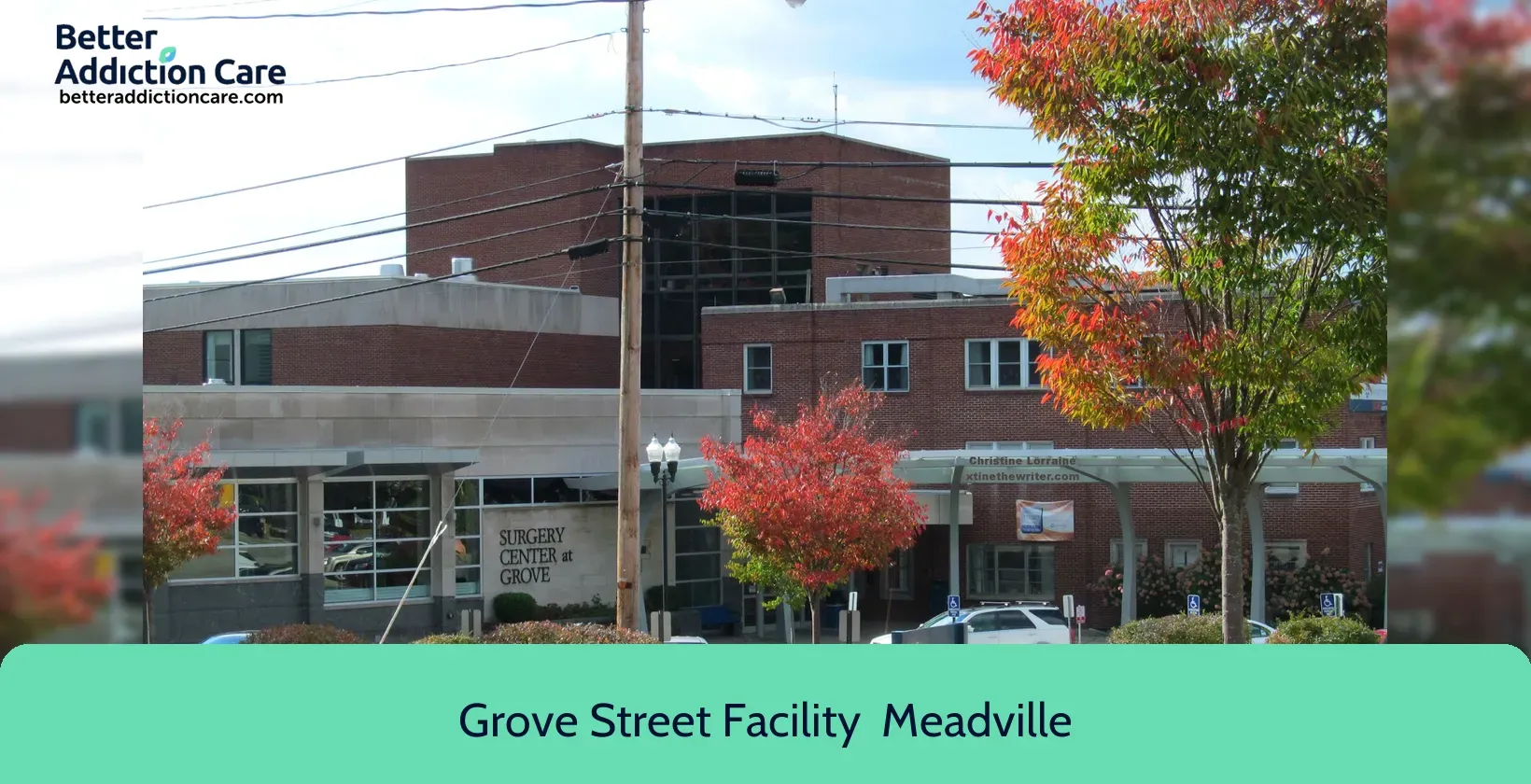Bethesda Lutheran Services

Overview
Bethesda Lutheran Services is a mental health treatment center for people seeking treatment near Crawford County. As part of their treatment modalities for recovery, Bethesda Lutheran Services provides couples/family therapy, group counseling, and cognitive behavioral therapy during treatment. Bethesda Lutheran Services is located in Meadville, Pennsylvania, accepting medicaid for treatment.
Bethesda Lutheran Services at a Glance
Payment Options
- Medicaid
- Medicare
- State-financed health insurance plan other than Medicaid
- Private health insurance
- Federal military insurance (e.g., TRICARE)
Assessments
- Screening for tobacco use
- Comprehensive mental health assessment
Age Groups
- Children/adolescents
- Young adults
- Seniors
Ancillary Services
- Intensive case management
- Case management service
- Education services
- Family psychoeducation
- Psychosocial rehabilitation services
Highlights About Bethesda Lutheran Services
6.65/10
With an overall rating of 6.65/10, this facility has following balanced range of services. Alcohol Rehabilitation: 8.00/10, Drug Rehab and Detox: 6.00/10, Insurance and Payments: 6.00/10, Treatment Options: 6.61/10.-
Alcohol Rehabilitation 8.00
-
Treatment Options 6.61
-
Drug Rehab and Detox 6.00
-
Insurance and Payments 6.00
Treatment At Bethesda Lutheran Services
Treatment Conditions
- Mental health treatment
Care Levels
- Hospital inpatient treatment
- Partial Hospitalization Program
- Outpatient
Treatment Modalities
- Couples/family therapy
- Group counseling
- Cognitive behavioral therapy
- Activity therapy
- Telemedicine/telehealth therapy
Ancillary Services
Languages
- Sign language services for the deaf and hard of hearing
Special Programs
- Criminal justice (other than DUI/DWI)/Forensic clients
- Clients who have experienced trauma
- Children/adolescents with serious emotional disturbance (SED)
- Persons 18 and older with serious mental illness (SMI)
Get Help Now
Common Questions About Bethesda Lutheran Services
Contact Information
Other Facilities in Meadville

6.75

7.48
DISCLAIMER: The facility name, logo and brand are the property and registered trademarks of Grove Street Facility - Meadville Medical Center, and are being used for identification and informational purposes only. Use of these names, logos and brands shall not imply endorsement. BetterAddictionCare.com is not affiliated with or sponsored by Grove Street Facility - Meadville Medical Center.
